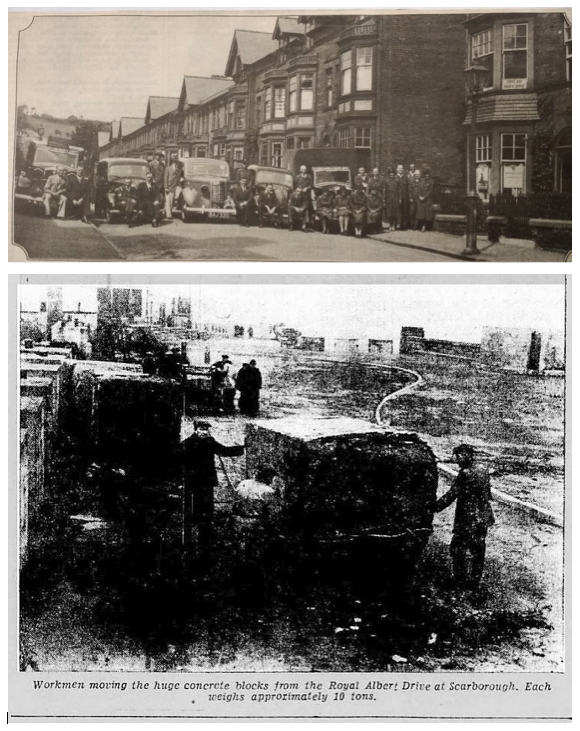Since the mid-1930s British war planning had assumed that a war against Germany would unleash a mass bombing of the country by the Luftwaffe, possibly involving the use of poison gas. The planners therefore developed a system of Air Raid Precautions (A.R.P.) as a “Forth Line” of defence against Germany. This was renamed “Civil Defence” in 1941. At the core of the A.R.P. machinery in Scarborough were the salaried full-time and voluntary part-time A.R.P. wardens, stationed at A.R.P. posts throughout the town and coordinated by a Report Centre in the Market Vaults. The wardens became a distinctive presence in everyday life, with their A.R.P. armbands and tin helmets. They were, “the eyes and ears of the civil defence machine.”
Wardens were supported, along with the regular police, fire and medical services, by a range of auxiliary forces that could be called upon in preparing the town for an air-raid. 302 Special Constables were appointed in Scarborough after the Munich Crisis in 1938. Some hundred part-time and full-time auxiliary firemen were on standby during the Phoney War, supported by three auxiliary fire stations.
The A.R.P. services relied heavily on volunteers. Women volunteers were an important pillar of air-raid precautions, especially those in the Women’s Voluntary Service, who would operate canteens for emergency workers, look after the victims of bombings and provide cars and drivers from their Transport Section.
